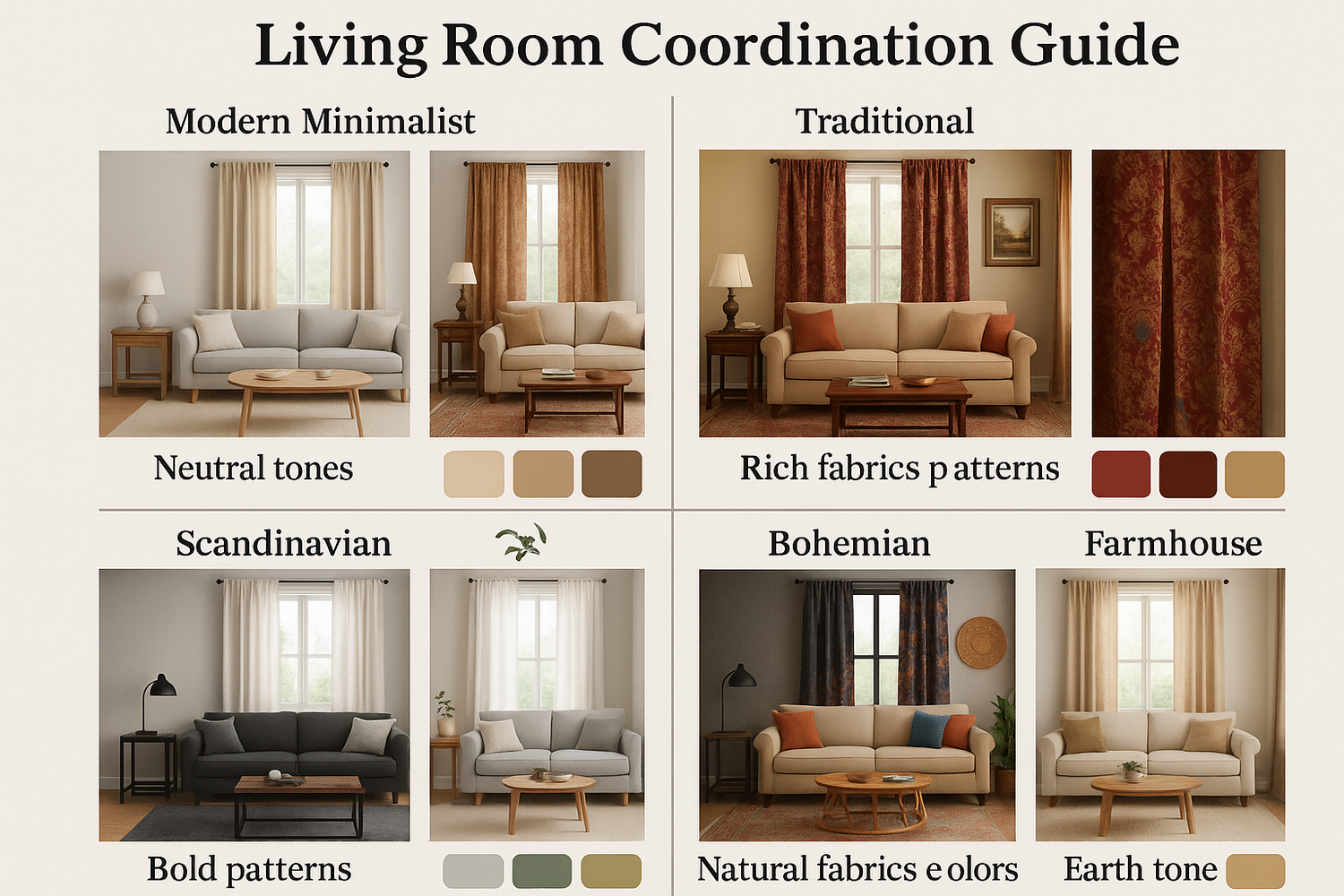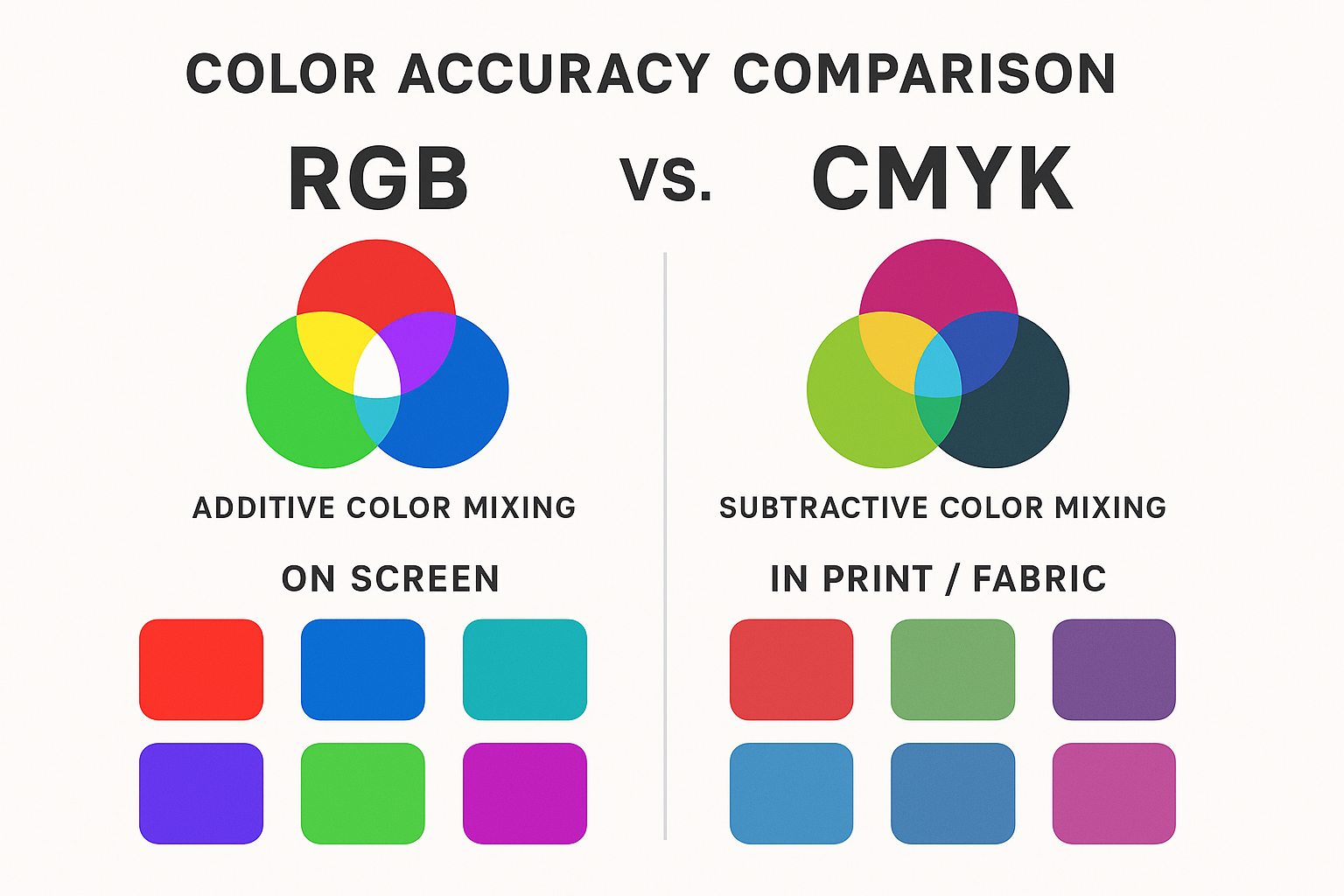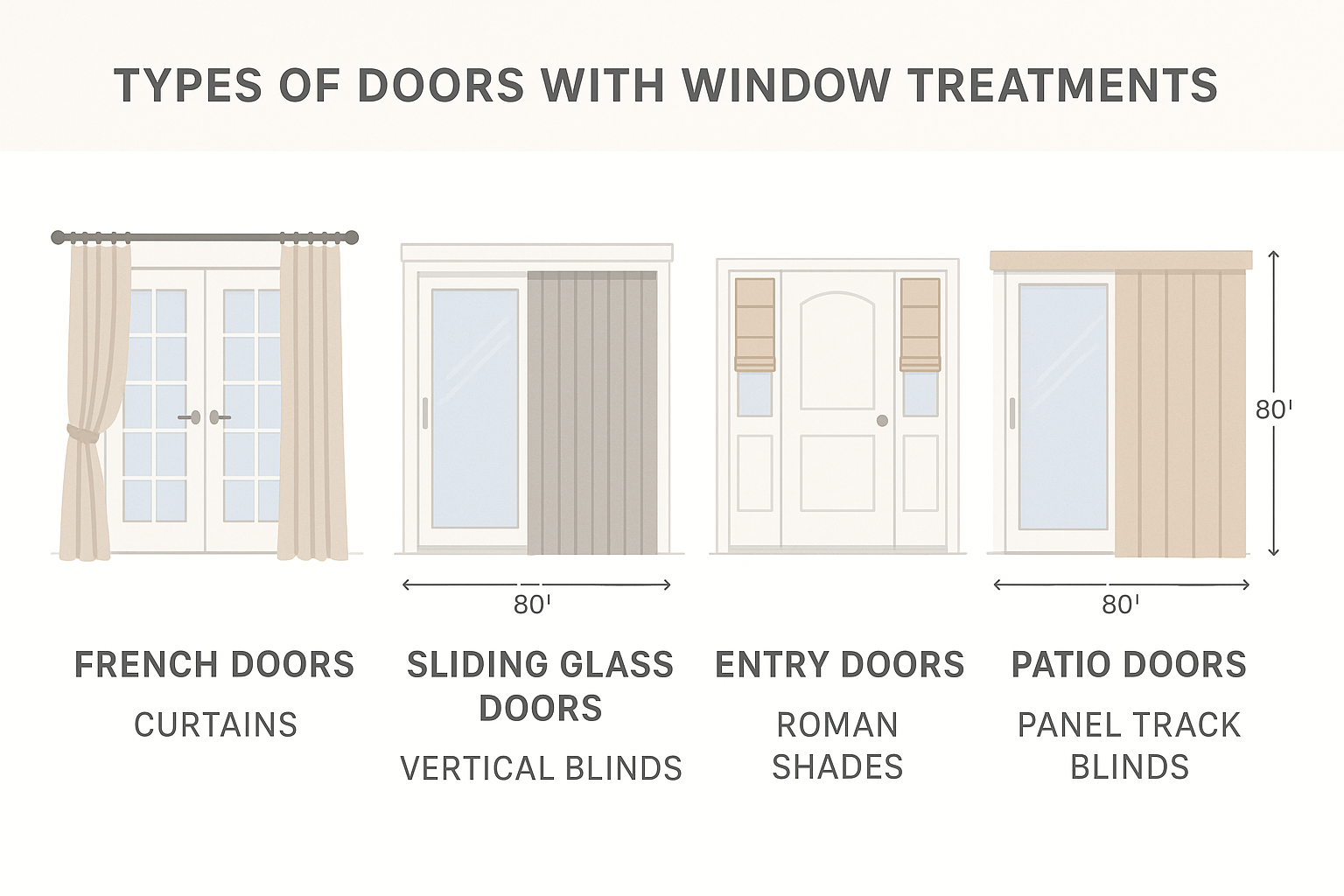Choosing the perfect curtains for your living room can transform your space from ordinary to extraordinary. The right color selection not only enhances your room's aesthetic appeal but also influences the mood, lighting, and overall atmosphere of your most-used living space. In this comprehensive guide, we'll explore professional designer tips and proven strategies to help you select curtain colors that perfectly complement your living room.

Understanding Color Psychology in Interior Design
Before diving into specific color choices, it's essential to understand how different colors affect our emotions and perception of space. Color psychology plays a crucial role in creating the desired atmosphere in your living room.
Warm Colors and Their Impact
- Red: Creates energy and warmth, perfect for social spaces
- Orange: Promotes enthusiasm and creativity
- Yellow: Brings sunshine and optimism to any room
- Warm Browns: Provide comfort and stability
Cool Colors for Tranquil Spaces
- Blue: Promotes relaxation and calm
- Green: Creates balance and harmony with nature
- Purple: Adds luxury and sophistication
- Cool Grays: Offer modern elegance and versatility
Analyzing Your Living Room's Existing Elements
Successful curtain color selection begins with a thorough analysis of your living room's current design elements. This foundation will guide your color choices and ensure a cohesive look.

Wall Color Considerations
| Wall Color | Recommended Curtain Colors | Design Effect |
|---|---|---|
| White/Off-White | Any color works - bold jewel tones, soft pastels, rich darks | Maximum flexibility and contrast options |
| Beige/Cream | Warm browns, soft blues, sage green, coral | Creates warm, inviting atmosphere |
| Gray | Yellow, teal, navy, burgundy, emerald | Adds personality to neutral backdrop |
| Bold Colors | Neutral tones, complementary colors | Balances strong wall colors |
Furniture and Flooring Harmony
Your existing furniture and flooring create the color palette foundation. Consider these elements when selecting curtain colors:
- Dark furniture: Light or medium-toned curtains create balance
- Light furniture: Both light and dark curtains work well
- Wood tones: Complement with warm colors or rich jewel tones
- Metal accents: Cool colors enhance modern metallic elements

The 60-30-10 Color Rule for Living Rooms
Professional designers often use the 60-30-10 rule to create balanced, visually appealing spaces. Understanding this principle will help you choose curtain colors that work harmoniously with your overall design.
Breaking Down the Rule
- 60% - Dominant Color: Usually walls and large furniture pieces
- 30% - Secondary Color: Often curtains, rugs, and accent furniture
- 10% - Accent Color: Pillows, artwork, and decorative accessories
Your curtains typically fall into the 30% category, making them a significant design element that should complement, not compete with, your dominant color scheme.

Light and Room Size Considerations
The amount of natural light your living room receives and its size significantly impact curtain color selection. These factors determine whether you should choose colors that enhance or modify your room's characteristics.
Natural Light Assessment
| Light Condition | Best Curtain Colors | Colors to Avoid | Design Goal |
|---|---|---|---|
| Abundant Natural Light | Rich darks, bold colors, deep jewel tones | Very light colors that wash out | Control brightness, add drama |
| Limited Natural Light | Light colors, warm tones, soft pastels | Dark colors that absorb light | Maximize available light |
| North-Facing Windows | Warm colors, yellows, corals, warm whites | Cool blues and grays | Add warmth to cool light |
| South-Facing Windows | Cool colors, blues, greens, cool grays | Warm colors that intensify heat | Balance intense sunlight |
Room Size Illusions
Curtain colors can dramatically affect how large or small your living room appears:
- Small Rooms: Light colors, vertical stripes, and monochromatic schemes create spaciousness
- Large Rooms: Dark colors, bold patterns, and contrasting colors create intimacy
- Low Ceilings: Vertical patterns and floor-to-ceiling curtains add height
- High Ceilings: Horizontal patterns and bold colors bring the ceiling down

Popular Living Room Curtain Color Schemes
Certain color combinations have proven successful in living room designs. These tried-and-true schemes provide excellent starting points for your curtain selection.
Monochromatic Elegance
Using different shades of the same color creates sophisticated, cohesive looks. This approach works particularly well in modern and minimalist living rooms.
- Gray Monochrome: Light gray walls with charcoal curtains
- Blue Variations: Powder blue walls with navy curtains
- Beige Spectrum: Cream walls with rich taupe curtains
Complementary Color Combinations
Colors opposite each other on the color wheel create vibrant, energetic combinations:
- Blue and Orange: Navy curtains with orange accent pillows
- Green and Red: Forest green curtains with burgundy furniture
- Purple and Yellow: Lavender curtains with golden accessories
Analogous Color Harmony
Colors next to each other on the color wheel create peaceful, harmonious combinations:
- Blue-Green-Purple: Teal curtains in a blue and purple room
- Red-Orange-Yellow: Coral curtains with warm-toned furniture
- Green-Blue-Purple: Sage curtains in a cool-toned space
Seasonal Curtain Color Strategies
Consider how your curtain colors will look throughout the year. Some homeowners prefer to change curtains seasonally, while others choose versatile colors that work year-round.
Year-Round Versatile Colors
- Neutral Tones: Beige, gray, cream, and taupe work in all seasons
- Classic Navy: Sophisticated and timeless
- Forest Green: Rich and elegant throughout the year
- Burgundy: Warm and inviting in any season
Seasonal Color Rotation
| Season | Recommended Colors | Mood Created |
|---|---|---|
| Spring | Soft pastels, light greens, pale yellows | Fresh, renewed, optimistic |
| Summer | Cool blues, whites, light grays | Cool, airy, relaxed |
| Fall | Warm oranges, deep reds, golden browns | Cozy, warm, inviting |
| Winter | Rich jewel tones, deep blues, burgundy | Warm, luxurious, intimate |
Pattern and Texture Considerations
While color is crucial, don't overlook how patterns and textures affect your curtain selection. These elements work together with color to create your desired aesthetic.
Pattern Guidelines
- Solid Colors: Versatile and timeless, work with any decor style
- Subtle Patterns: Add interest without overwhelming the space
- Bold Patterns: Make a statement but require careful coordination
- Geometric Patterns: Perfect for modern and contemporary spaces
- Floral Patterns: Ideal for traditional and romantic decor
Texture Impact on Color
Different textures can make the same color appear different:
- Silk and Satin: Reflect light, making colors appear brighter
- Velvet and Suede: Absorb light, making colors appear deeper
- Linen and Cotton: Provide natural, casual appearance
- Sheer Fabrics: Soften colors and create ethereal effects
Common Curtain Color Mistakes to Avoid
Learning from common mistakes can save you time, money, and design disappointment. Here are the most frequent curtain color selection errors:
Color Matching Pitfalls
- Exact Matching: Perfectly matching curtains to walls creates a flat, boring look
- Too Many Colors: Using more than three main colors creates chaos
- Ignoring Undertones: Not considering warm vs. cool undertones in colors
- Forgetting Lighting: Not testing colors in different lighting conditions
Proportion and Scale Errors
- Wrong Pattern Scale: Large patterns in small rooms, tiny patterns in large rooms
- Inappropriate Color Weight: Heavy dark colors in small spaces
- Ignoring Ceiling Height: Not using color to enhance room proportions
Testing and Finalizing Your Color Choice
Before making your final curtain purchase, it's essential to test your color choices in your actual living space. This step prevents costly mistakes and ensures satisfaction with your selection.
Color Testing Methods
- Fabric Samples: Order samples and view them in your room at different times of day
- Large Swatches: Use larger fabric pieces to better visualize the final look
- Digital Visualization: Use design apps to preview colors in your space
- Temporary Installation: Hang sample fabrics temporarily to assess the overall effect
Lighting Evaluation
Test your chosen colors under different lighting conditions:
- Natural daylight: Morning, afternoon, and evening light
- Artificial lighting: Overhead lights, lamps, and accent lighting
- Seasonal changes: Consider how light changes throughout the year
Budget-Friendly Color Update Strategies
Updating your living room's look doesn't always require expensive new curtains. Here are cost-effective ways to refresh your space with color:
DIY Color Solutions
- Fabric Dye: Transform existing light-colored curtains with fabric dye
- Trim and Borders: Add colorful trim to plain curtains
- Tie-backs and Hardware: Update with colorful tie-backs and curtain rods
- Layering: Add colored sheers over existing curtains
Seasonal Accessories
Change your room's color scheme without replacing curtains:
- Throw Pillows: Easy way to introduce new colors
- Artwork: Add colorful prints and paintings
- Area Rugs: Ground the space with complementary colors
- Plants and Flowers: Natural color accents that change seasonally
Professional Designer Secrets
Interior designers use specific techniques to ensure curtain colors work perfectly in living spaces. These professional secrets can help you achieve designer-quality results.
The 3-Color Rule
Limit your color palette to three main colors for cohesive design:
- Dominant Color (60%): Usually walls or large furniture
- Secondary Color (30%): Curtains, rugs, or accent furniture
- Accent Color (10%): Accessories and decorative elements
Color Temperature Consistency
Maintain consistent color temperatures throughout your space:
- Warm Palette: Reds, oranges, yellows, and warm neutrals
- Cool Palette: Blues, greens, purples, and cool grays
- Mixed Temperatures: Use one as dominant, the other as accent
Curtain Color Trends and Timeless Choices
While it's tempting to follow the latest trends, balancing current styles with timeless appeal ensures your curtains remain beautiful for years to come.
Current Color Trends
- Earth Tones: Terracotta, sage green, and warm browns
- Jewel Tones: Emerald, sapphire, and amethyst
- Soft Pastels: Blush pink, powder blue, and lavender
- Bold Monochromes: Pure white, deep black, and charcoal
Timeless Color Choices
These colors never go out of style:
- Classic Navy: Sophisticated and versatile
- Warm Gray: Modern yet timeless
- Cream and Ivory: Elegant and adaptable
- Forest Green: Rich and enduring
Maintenance and Longevity Considerations
Your curtain color choice should also consider practical aspects like maintenance and longevity. Some colors and fabrics require more care than others.
Low-Maintenance Color Options
| Color Type | Maintenance Level | Longevity | Best For |
|---|---|---|---|
| Dark Colors | Low - hide dirt and stains | High - fade less noticeably | High-traffic areas |
| Medium Tones | Medium - moderate cleaning needs | High - versatile and forgiving | Most living rooms |
| Light Colors | High - show dirt easily | Medium - may show wear | Low-traffic, formal spaces |
| Patterns | Low - camouflage stains | Variable - depends on pattern type | Family rooms with children |
Conclusion: Creating Your Perfect Living Room
Choosing the perfect curtain color for your living room is both an art and a science. By considering your room's existing elements, natural light, size, and your personal style preferences, you can select colors that transform your space into a beautiful, functional haven.
Remember these key principles:
- Analyze your existing color palette before making decisions
- Consider how natural light affects color appearance
- Use the 60-30-10 rule for balanced color distribution
- Test colors in your actual space before purchasing
- Balance current trends with timeless appeal
- Consider maintenance and longevity in your selection
Whether you choose bold jewel tones to make a statement, soft neutrals for timeless elegance, or seasonal colors for year-round variety, the right curtain color will enhance your living room's beauty and functionality for years to come.
Ready to Transform Your Living Room?
Explore our extensive collection of living room curtains in every color imaginable. From classic neutrals to bold statement colors, we have the perfect curtains to bring your design vision to life. Browse our curated selection and find the ideal color to complement your living space.





Leave a comment
This site is protected by hCaptcha and the hCaptcha Privacy Policy and Terms of Service apply.